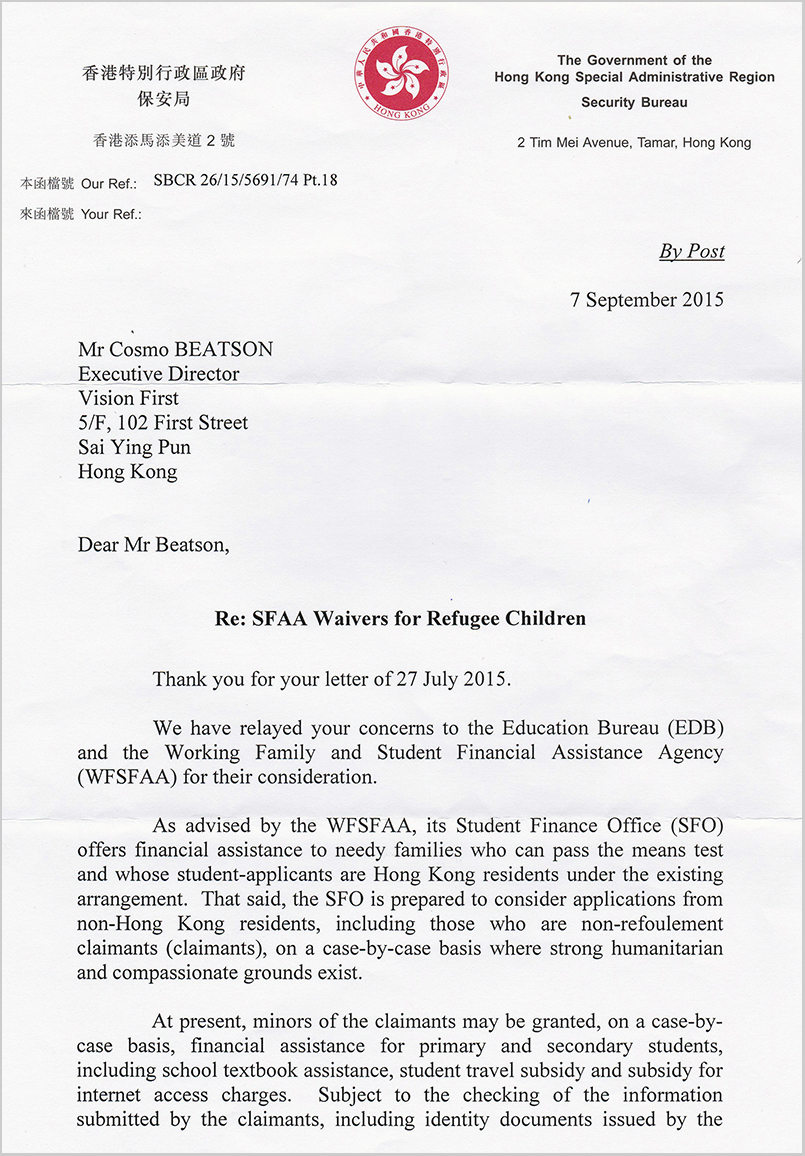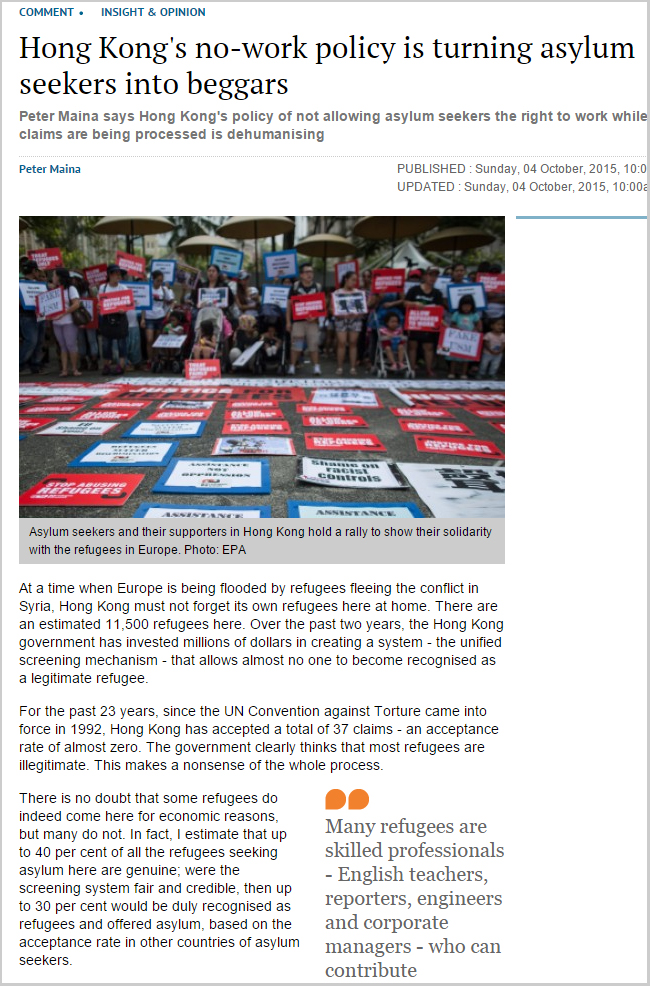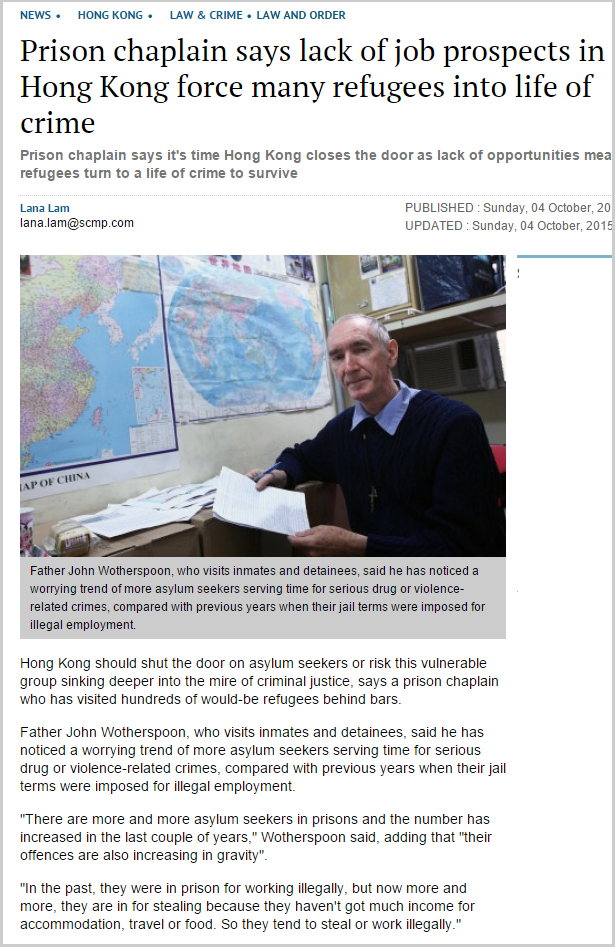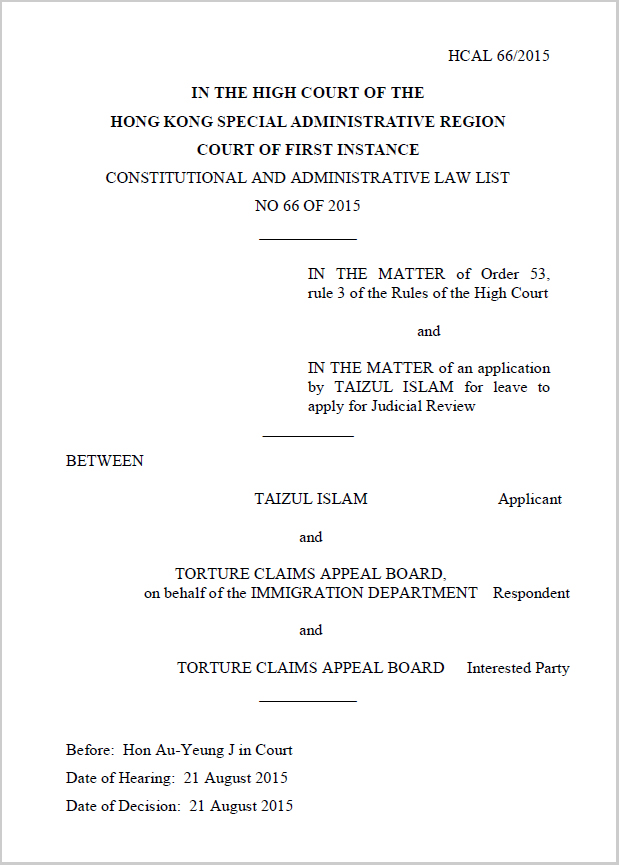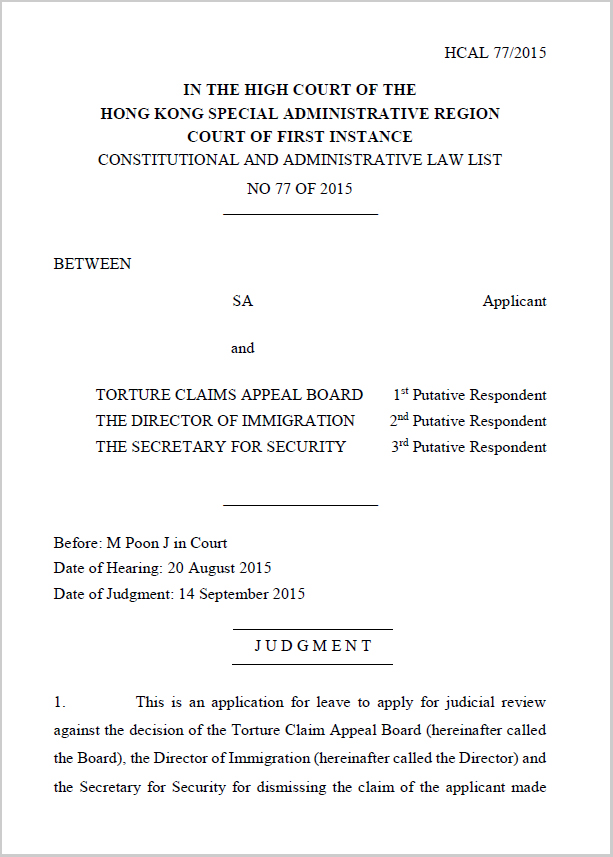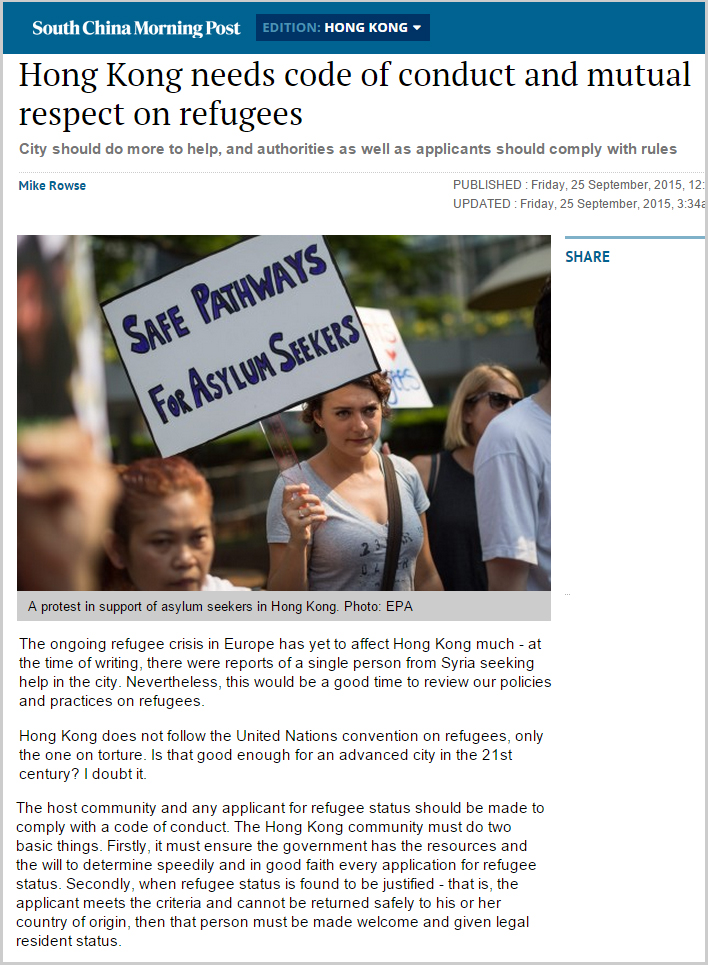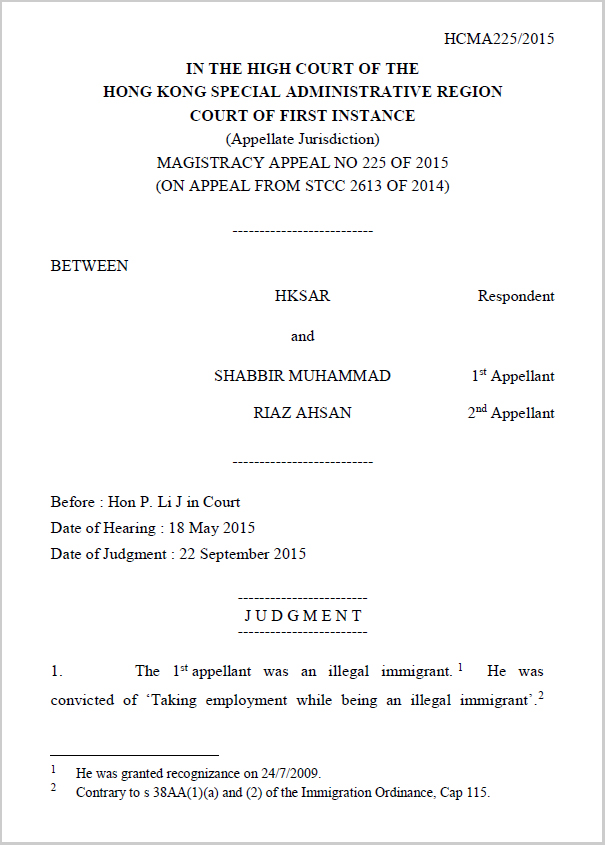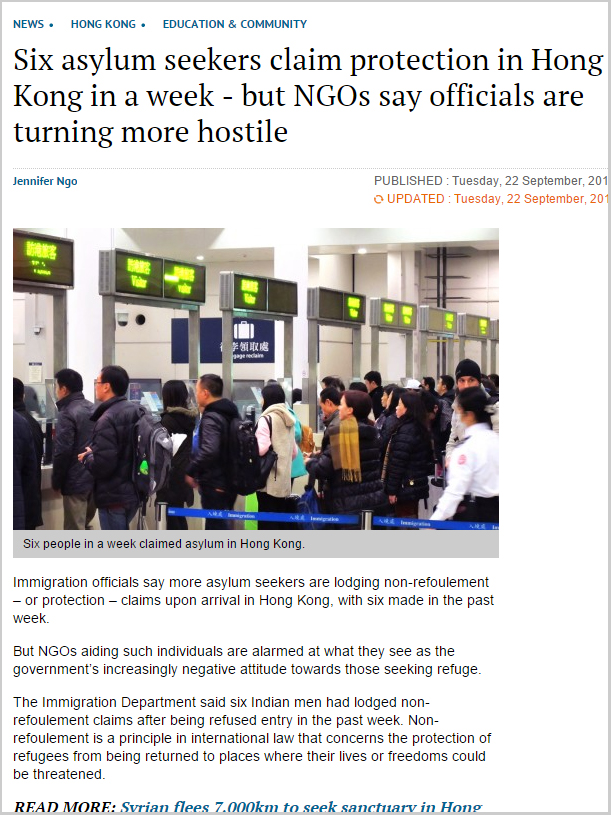Archive
Hong Kong’s no-work policy is turning asylum seekers into beggars
Oct 5th, 2015 | Crime, Immigration, Refugee Community, Rejection, Welfare | Comment
Prison chaplain says lack of job prospects in Hong Kong force many refugees into life of crime
Oct 5th, 2015 | Advocacy, Crime, Immigration, Welfare | Comment
Does Hong Kong judge refugees as ‘bogus’ upon arrival?
Sep 26th, 2015 | Advocacy, Immigration, Racism, Rejection, VF Opinion | Comment
What happened to the universal and unalienable right to seek asylum?
What happened to the benefit of doubt through the assessment process?
What happened to trumpeted (but not respected) high standards of fairness?
What happened to critical thinking by media outlets?
What is happening to refugee rights in Hong Kong?
Hong Kong Government policy on seeking asylum: “According to the Secretary for Security, foreigners who smuggled themselves into Hong Kong, and visitors who overstayed their limit of stay allowed by the Immigration Department (“ImmD”) or who were refused entry by ImmD upon arrival in Hong Kong (collectively known as “illegal immigrants”) are liable to be removed from Hong Kong in accordance with the Immigration Ordinance (Cap. 115) (“the Ordinance”). To safeguard immigration control and for public interest, they should be removed as soon as practicable. However, pursuant to the United Nations Convention Against Torture which applies to Hong Kong since 1992, and multiple court rulings since 2004, ImmD cannot remove illegal immigrants to another country where they would face a genuine and personal risk of being subjected to torture, or cruel, inhuman or degrading treatment or punishment, or persecution. Moreover, the court rulings mandate that if an illegal immigrant alleges that he would face such risks upon removal to another country, he cannot be removed from Hong Kong to that country unless such risks are assessed by ImmD to be unsubstantiated under procedures which meet the high standards of fairness.”
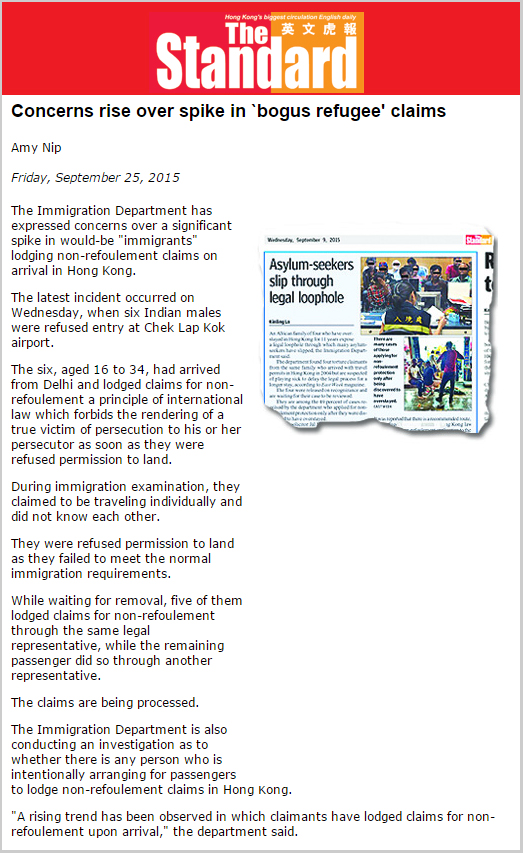
Hong Kong needs code of conduct and mutual respect on refugees
Sep 25th, 2015 | Immigration, Media, Rejection | Comment
Why is Immigration targeting Indian refugees?
Sep 23rd, 2015 | Government, Immigration | Comment
Fact 1 – an average of 28 new claims are lodged at border crossings monthly.
Fact 2 – an average of 380 new claims are lodged with Immigration monthly.
Fact 3 – Immigration Press Releases in 2015 overwhelmingly single out Indian refugees.
We are often told in official documents that it is an indication of asylum abuse to apply for protection several months after a refugee arrives in Hong Kong. Now we are similarly made to understand that applying for protection as soon as a claimant arrives in Hong Kong and avails himself of a lawyer is also a possible indication of abuse.
Vision First queries, may the ImmD provide guidelines about what they consider a reasonable time to seek asylum?
Further, Immigration is upset as there are legal representatives assisting refugee upon arrival at Hong Kong border points. So the authorities have in effect lost control over the entry of refugees from the very start. This is a problem for Immigration as in the past refugees could be turned away without anyone knowing and /or they would be locked up in CIC detention without any legal knowledge or assistance. Immigration would then keep them locked up and put pressure on them and in effect fetter their USM claims as lawyers are hampered when asylum seekers are locked up.
Further, Immigration may also be upset at the raising of asylum claims from the start indicates a stronger asylum claim, and the increase in new claims suggests that these claims may not be easily rejected. So in effect Immigration has lost the oppressive controls they utilise over new arrivals. This also threatens a new flood of refugees raising their USM clams on arrival, rather than when arrested.
It is ironic as Immigration has always acted in a manner that has been oppressive and prejudicial to asylum seekers and now this opportunity to abuse is being dramatically removed from them. No one said Immigration would be happy if refugees raised their asylum claims upon arrival. All that the Immigration Appeal Board says is that these claimants are not real refugees as they failed to raise their USM claims at the earliest time. Immigration only used this excuse to rejects USM claims and to call such refugees “illegal immigrants and economic migrants” seeking to take jobs away from local people. Now it cannot be said that easily any more.
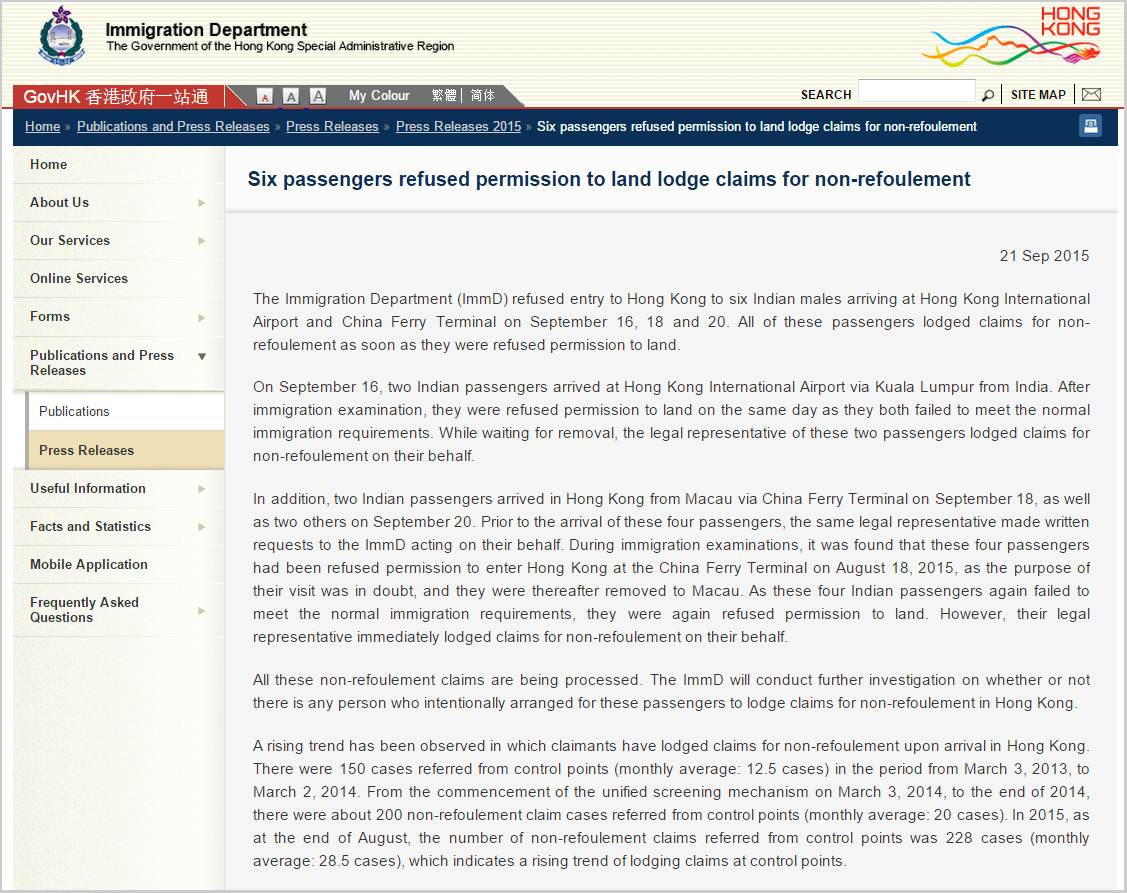
Security Bureau response to school fee issue
Sep 21st, 2015 | Advocacy, Government, Schooling | Comment
On 27 July 2015, Vision First wrote to the Security Bureau to request wavers of school fees for refugee children. The problem Vision First identified is that school fees are generally met by the government for those families of refugee background that pass the government means test (and of course all refugee families do as they are prevented from lawfully engage in income-generating activities). However, the subsidies are paid several months after these families are required by schools to pay fees and other expenses. Payment requests are reported to sometimes include threats to expel students.
The Security Bureau implicitly acknowledges the problem in its reply and from next year payments of financial assistance will be disbursed to refugee families no later than October for primary and secondary schools, and as early as September for kindergartens. In this respect, parents are urged to complete applications promptly and follow up with SFAA directly.
This arrangement is not the more practical and efficient waver system offered by the Hospital Authorities for medical fees. However it is certainly better than funds sometimes reaching refugees in January or March of the following year, leaving cash-strapped refugees with the problem of raising money to pay for the compulsory education of their children. It is advisable for ISS-HK and other NGOs to release SFAA funds to refugee parents without delay to minimize financial hardship and possible embarrassing situations.
NGOs and good hearted Hong Kong citizens would no longer need to advance money better spent on other purposes if government financial assistance for students were settled directly with the school at the time of enrollment. More advocacy is required on the part of civil society groups concerned with the rights of refugee children.
